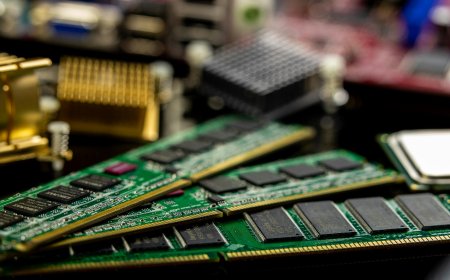The Rise of Personalized Nutrition: DNA-Based Diet Plans

Within the always-changing field of health and wellness, the idea of a customized diet has become a breakthrough trend. Among its most evolved forms is the DNA-based diet, which customizes dietary recommendations based on genetic composition. Unlike conventional one-size-fits-all solutions, DNA-based diets promise a more exact, efficient, and sustainable means to reach optimal health. The workings of DNA-based nutrition, its advantages, difficulties, and expanding impact on contemporary eating habits are investigated in this paper.
What is a DNA-Based Diet?
A DNA-based diet is a customized diet developed from knowledge about a person's genetic makeup. Nutrigenomics, which investigates the interplay between genes and nutrients, forms the basis of the science underlying this. Our bodies metabolize food, absorb nutrients, store fat, and react to exercise depending on genetic differences. Through the analysis of genetic markers, DNA testing might expose predispositions to food sensitivities, nutrient deficits, and even chronic illnesses such as diabetes or heart disease.
Low-carb diets are more beneficial for some people, for example, who may metabolize carbs poorly because of genetic causes. Others can be more sensitive to gluten or lactose and need dietary changes to prevent discomfort. A DNA-based diet helps to match these revelations with customized meal programs to maximize results on health.
The Science Behind It
Genetic analysis ways the cornerstone of DNA-based nutrition. Companies providing these treatments examine genetic markers from a saliva or blood sample. These markers provide insights into:
1. Macronutrient Metabolism: How efficiently your body processes carbohydrates, fats, and proteins.
2. Micronutrient Needs: Genetic predispositions to deficiencies in vitamins like B12 or minerals like iron.
3. Food Sensitivities: Intolerances to substances such as lactose or gluten.
4. Exercise Response: Genetic tendencies toward endurance or strength-based activities.
5. Health Risks: Predispositions to conditions like obesity or high cholesterol.
Once this data is collected, nutritionists or specialized apps generate a customized dietary plan tailored to your genetic blueprint.
Why DNA-Based Diets Are Gaining Popularity
The rise of DNA-based diets reflects broader trends in health and technology. Here are some reasons for their growing appeal:
1. Personalization: Unlike general diets that typically fail because of their rigidity, DNA-based programs are specially tailored for every person. This raises loyalty and long-term success.
2. Technological Advancements: Modern algorithms and reasonably priced genetic testing kits have made tailored diets available to everyone.
3. Preventive Healthcare: As healthcare shifts from treatment to prevention, personalized diets help mitigate risks for chronic diseases by addressing genetic vulnerabilities early.
4. Increased Health Awareness: DNA-based diets provide a reliable substitute as more people look for customized solutions for weight control and wellness goals.
Benefits of DNA-Based Diets
DNA-based nutrition offers several advantages over traditional diet plans:
1. Enhanced Nutrient Absorption: Knowing how your body absorbs nutrients helps you to maximize your diet and avoid either excesses or shortages.
2. Sustainable Weight Management: Matching food selections to your metabolism helps you to lose or maintain weight more easily and less aggravatingly.
3. Improved Health Outcomes: Customized strategies assist lowers the risks connected to diet-related disorders such as heart disease, diabetes, or hypertension.
4. Food Sensitivity Management: Avoiding trigger foods depending on genetic predispositions can help with conditions including bloating or tiredness.
5. Exercise Optimization: Knowing whether your body responds best to strength or endurance training will improve your results from exercise.
For instance, after six months, research comparing people on DNA-based diets against traditional regimens found notable weight reduction improvements in those following genetically customized suggestions.
Challenges and Limitations
While promising, DNA-based diets are not without challenges:
1. Cost and Accessibility: Expensive genetic testing services can limit access for a lot of people. There is work to make these answers more reasonably priced.
2. Data Privacy Concerns: Sharing genetic data begs issues regarding data security and outside third-party abuse.
3. Scientific Limitations: Nutrigenomics is still a field under development even if it is advancing fast. Not every genetic marker now clearly relates to nutrition.
4. Overemphasis on Genetics: Although they may be disregarded in strict genetic approaches, environmental elements including lifestyle and gut microbiota also play major influences on health.
How to Get Started with a DNA-Based Diet
Embarking on a DNA diet involves several steps:
1. Genetic Testing: Choose a reputable service provider that uses CLIA-certified labs and follows privacy standards.
2. Consultation with Experts: Find a trained dietitian or nutritionist who can analyze your data and design doable meal programs.
3. Implement Gradual Changes: Incorporate dietary recommendations slowly to ensure sustainability.
4. Monitor Progress: Regularly assess how your body responds to the new diet and adjust as needed.
Some companies also offer additional tools such as mobile apps for tracking meals or coaching sessions with dietitians.
The Future of Personalized Nutrition
Personalized nutrition's range will grow outside of genes as technology develops. For even more exact recommendations, future developments could combine data from wearable devices, gut microbiome investigation, and real-time metabolic tracking.
Furthermore, advances in food technology are opening the path for smart food products catered to specific needs. For example, fortified snacks or drinks tailored to your biology might start to be standard.
Conclusion
The rise of DNA-based diets represents a fundamental change in our perspective on well-being and nutrition. Customizing dietary recommendations to a person's genetic profile presents a creative way to provide better health results, sustainable weight control, and greater quality of life.
Like every developing trend, though, it is imperative to strike a balance between excitement and caution. Although nutrigenomics has convincing scientific support, it should complement rather than replace holistic ideas of environmental influences and lifestyle.
One gene at a time, DNA-based diets represent an interesting frontier in the search for optimal health in a society more and more shaped by personalization.
What's Your Reaction?
 Like
0
Like
0
 Dislike
0
Dislike
0
 Love
0
Love
0
 Funny
0
Funny
0
 Angry
0
Angry
0
 Sad
0
Sad
0
 Wow
0
Wow
0
































